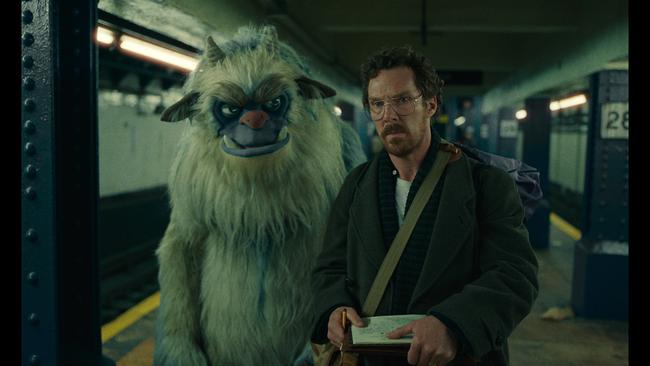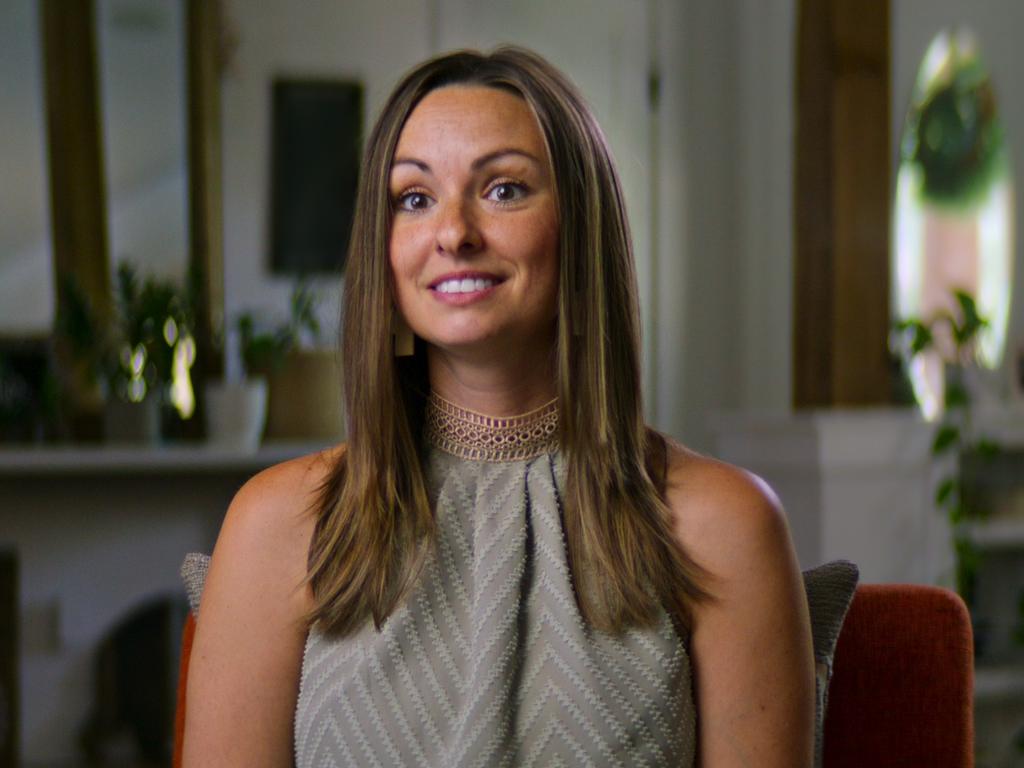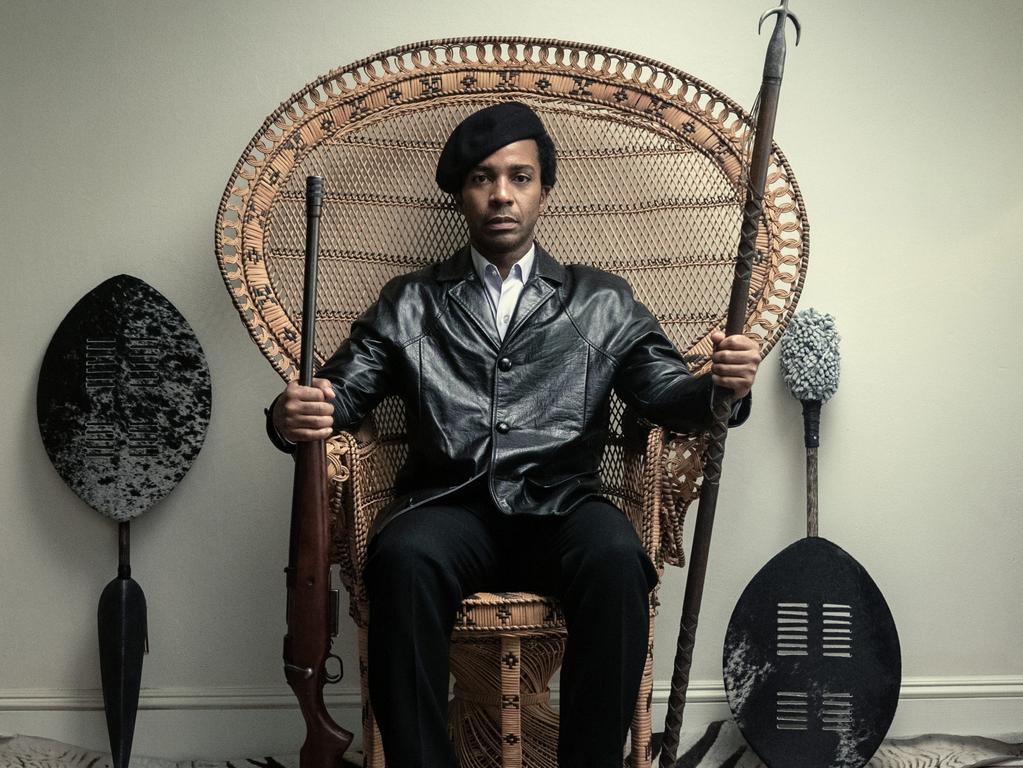Benedict Cumberbatch’s dark turn in thrilling Netflix hit Eric
Benedict Cumberbatch shines in Eric, a new six-part series about a missing child. It is a show as compelling as it is odd.

The dust is finally settling after the streaming wars, the economic pain devastating, and we’re left with a great deal of confusion.
There’s an ominous back-to-the-future quality to the media landscape, with a permanent contraction in the streaming economy.
The good news is there hasn’t been a shrinkage in the number of good shows, even if their seasons are much shorter in length but still capable of delivering entertaining stories.
The latest is Eric, a six-part series as compelling as its title is odd, a missing child mystery, a procedural thriller carried out in the streets of a decaying 1980s New York. It’s the “Rotten Apple” for a generation of Americans, but which paradoxically is presented with an endearing touch of magic realism.
It’s also a dark-night-of-the-soul study of a man, a gifted puppeteer called Vincent Anderson, played by the mercurial Benedict Cumberbatch, looking for solace to compensate for his culpability in losing his son on the mean streets on his way to school.
The man behind a whimsical children’s TV puppet show, he’s irascible, funny, charismatic, narcissistic, and a survivor of a loveless childhood, his father a rapacious property tycoon bent on regentrification. Sinking into the depths of alcoholism, struck by a drunken epiphany, he believes the only way to find his “kid”, as he’s always calling him, is to bring to life the boy’s hand-drawn creation – a furry gentle blue giant with a gruff voice named Eric.
The puppet, a manifestation of Vincent’s psychosis, guilt and desire for redemption, also represents his childhood traumas, the result of a toxic generational cycle that becomes clearer as the story unfolds. This is a series that unpacks many ideas as it goes about solving several mysteries. Or does it?
Starring alongside Cumberbatch (who is also the gravelly voice of Eric) in a deep, committed ensemble cast are Gabby Hoffman (Winning Time: The Rise of the Laker Dynasty) as Vincent’s long-suffering, highly strung wife Cassie. McKinley Belcher III (We Own This City) is NYPD detective Ledroit, a closeted gay man who is convinced Edgar’s disappearance is linked to the Luxe, a seedy local nightclub. And Clarke Peters (The Wire) is George, the welcoming maintenance man for Vincent and Cassie’s building, an early, and rather obvious, suspect in the crime.
Eric is from the enterprising production house Sister, co-founded by producer Jane Featherstone a decade ago, her award-winning shows including Giri/Haji, Gangs of London and Chernobyl. Its independence, she argues, has enabled her to take advantage of the current streaming chaos.
“Everyone wants to spend less money so rights could become more flexible and that means there are different ways of putting financing together,” she recently told news site Decider.
“So I think we are in a position to be nimble. We just have to hold firm to working with the best writers because in a slump you have to hold on to your own judgment, otherwise you can get a bit sidetracked.”
Eric was created and is written by acclaimed writer Abi Morgan, known not only for her movies The Iron Lady, Shame and Suffragette, but for fine TV dramas such as the popular BBC series The Split and The Hour. That series won an Emmy – a lavish, stylish and seductive conspiracy thriller, set at the BBC in 1956, the year of the Suez Crisis, the military invasion of Egypt that exposed British imperialism’s economic and political weakness.
Revealing Morgan’s gift for period, The Hour seduced us into a murky Graham Greene-like world of subterfuge, intimidation, and political scheming, which served as background to an intense love triangle between the three leading characters.
Eric’s director is the accomplished Lucy Forbes, best known for her award-winning In My Skin (BBC) and The End of the F***ing World (Netflix), which both rapidly earned her international acclaim. And the series is produced by Featherstone, alongside Forbes, Cumberbatch, and Morgan.
“When I pitched the idea of a New York puppeteer on a quest to find his missing son, with a seven-foot-tall blue monster in tow, it’s to Netflix’s eternal credit that they jumped on board,” Morgan says.
“Eric is a deep dive into the ’80s Big Apple, grappling with rising crime rates, internal corruption, endemic racism, a forgotten underclass, and the AIDS epidemic, exposing the divisions rife between parents searching for their child, a detective battling with a system that is broken, and a lost boy who may never come home – and asks where the real monsters lie. With puppets … lots of puppets.”
And for Morgan, who lived in New York during the period of the drama, while it touches on issues, it’s deliberately about what she calls the six degrees of separation.
“It’s really about the different cogs and the way they cross,” she says. “I try to do a lightness of touch with those connection points. It’s about that period in mid-’80s New York that was going through that incredible moment of transformation. And I hope those things read, but I’m not consciously going, ‘Right, tick – I’ve done that. Let’s put a bit of racism in there’.”
She talks in interviews of her time in New York in the mid-1980s as a nanny, living across the road from a studio where kids’ TV was produced, saying she wanted to “fuse” that experience with that of having grown up with parents from creative backgrounds. (They were in theatre and backstage has always fascinated her, she says.)
“This period was vibrant and exciting, like the New York I’d loved in all the movies but with that darker underbelly. I got a sense of homelessness, addiction and nightclubs, and there were other things. So Eric is a fusion of moments in time and a desire to explore the creative genius in a family.”
It’s 1985 when the mystery begins just 48 hours after Edgar, played delightfully by Ivan Morris Howe, disappears. His distraught parents, surrounded by police, face the press in a conference pleading for the boy’s return. Vincent leans into the microphone and says, “Edgar, if you’re watching this … I’m sorry, buddy.”
It’s a jarring moment that abruptly takes us back two days earlier to the studios of Vincent’s children’s TV show, Good Morning Sunshine, an early 1980s Sesame Street-like puppet show filmed and broadcast in New York City.
“Be good, be kind, be brave, be different” is the show’s mantra and message, but we quickly discover Vincent, while certainly different, is hardly brave, good or kind.
The puppeteer and his team face increasing pressure from their network to broaden the show’s appeal by introducing new characters, to bridge the gap between the preschoolers and the elementary kids. Vincent is argumentatively opposed, even though his son, hovering backstage, has already suggested a new big blue monster for his dad’s show.
At home that night arguments continue, Vincent embroiled in a bitter continuing conflict with Cassie, often in front of the boy, who is constantly taunted and teased by his father. (“You never know if he’s kidding or not,” a colleague says of Vincent. “I guess that’s the price of genius.”)
Edgar disappears the next morning after spending the night working on his puppet design. Missing Person’s Detective Michael Ledroit takes on the investigation, but it turns out he’s also obsessed with another case.
This one is focused on a 14-year-old black boy named Marlon Rochell, who disappeared 11 months prior but whose case has not been out of the public spotlight. The detective is also hiding his sexuality at work and caring for his long-term partner, William (Mark Gillis), who has AIDS, at home.
It’s an intense, immersive production, expertly directed by Forbes – she calls it “kind of like a show inside a show, inside a show, instead of a show” – who with her long-time cinematographer Benedict Spence has a nice way with a subjective approach to camera work. She takes us in close to the action so it’s almost like we are participating, too. More often than in most TV dramas they guide our gaze, create atmosphere around the story and add emotional depth to the narrative.
Ironically for a show that focuses on New York almost as a muse to the story and as another character, much of it was shot in a studio in Budapest using a New York set left over from Guillermo del Toro’s movie Hellboy II: The Golden Army. But the look and the feel of the series, inspired by Forbes’ study of iconic street photographers Bruce Davidson and Martha Cooper, captures the visceral rush and sense of immediate danger of New York in the 1980s.
There’s a lot going on in Eric and at times the storyline seems a little strained as it struggles with so many issues and competing storylines. And Vincent’s giant, fuzzy, imaginary companion becomes a little irritating, his presence distracting.
However, the show’s ambition, its empathy, central performances and committed direction make for compulsive, if at times harrowing, viewing.
Eric, streaming on Netflix






To join the conversation, please log in. Don't have an account? Register
Join the conversation, you are commenting as Logout